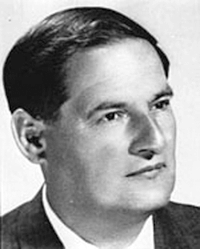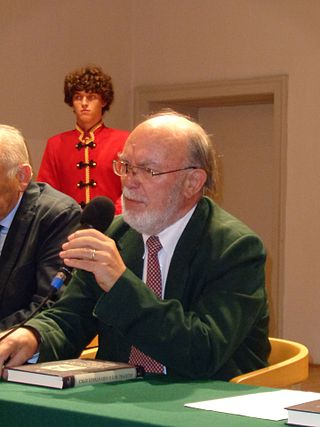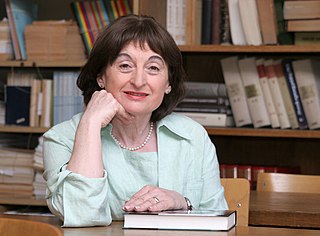
Vatroslav Jagić was a Croatian scholar of Slavic studies in the second half of the 19th century.
Radoslav Katičić was a Croatian linguist, classical philologist, Indo-Europeanist, Slavist and Indologist, one of the most prominent Croatian scholars in the humanities.
Dalibor Brozović was a Croatian linguist, Slavist, dialectologist and politician. He studied the history of standard languages in the Slavic region, especially Croatian. He was an active Esperantist since 1946, and wrote Esperanto poetry as well as translated works into the language.
Ivo Pranjković is a Croatian linguist.

Matica hrvatska is the oldest independent, non-profit and non-governmental Croatian national institution. It was founded on February 2, 1842 by the Croatian Count Janko Drašković and other prominent members of the Illyrian movement during the Croatian National Revival (1835–1874). Its main goals are to promote Croatian national and cultural identity in the fields of art, science, spiritual creativity, economy and public life as well as to care for social development of Croatia.
Ranko Matasović is a Croatian linguist, Indo-Europeanist, and Celticist.

Stjepan Babić was a Croatian linguist and academic.
Stjepan Musulin was a Yugoslav linguist, comparative Slavicist, philologist, lexicographer and translator.

Ljudevit Jonke was a Croatian linguist.

The Kiev Missal is a seven-folio Glagolitic Old Church Slavonic canon manuscript containing parts of the Roman-rite liturgy. It is usually held to be the oldest and the most archaic Old Church Slavonic manuscript, and is dated at no later than the latter half of the 10th century. Seven parchment folios have been preserved in small format of easily portable book to be of use to missionaries on the move.

Slobodan Prosperov Novak, is a Croatian literature historian, comparativist and theatrologist.
Dubravko Škiljan, was a Croatian linguist known for his work on Classical philology and semiotics.
Eduard Hercigonja was a Croatian philologist, Croatist and literary historian. University professor and a member of the Croatian Academy of Sciences and Arts, he authored several fundamental works on medieval Croatian literature and culture.

Josip Bratulić is a Croatian philologist and a historian of literature and culture.

Petar Šimun "Šime" Budinić Zadranin was a 16th-century Venetian-Croatian Catholic priest and writer from Zadar, Venetian Dalmatia. He was a translator of psalms and catechetical texts, promoter of post-Tridentine Catholicism, and a poet.
Sanda Ham is a Croatian linguist and publicist. She is editor of the Croatian linguistic magazine Jezik.
Mate Kapović is a Croatian linguist specializing in Indo-European, Slavic languages and the Proto-Balto-Slavic language.

Dubravka Oraić Tolić is a Croatian poet, essayist, translator, and theorist of literature and culture.

Mate Božić is a Croatian historian, writer and author.











